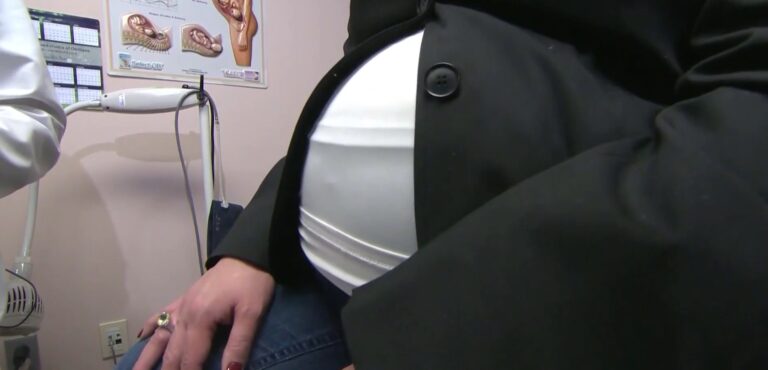
UAMS study says virtual care helps close postpartum gaps
ARKANSAS, USA — A new study from the University of Arkansas for Medical Sciences (UAMS) shows virtual healthcare may help close critical gaps in postpartum services for new mothers across Arkansas.
The research, published in the American Journal of Obstetrics and Gynecology Global Report, found that postpartum mothers who received digital health services were more likely to be screened for cigarette use, emotional and physical abuse, and postpartum depression.
“We’re a state that has really struggled in terms of maternal health. Our outcomes are, you know, definitely not where we’d like them to be,” said Don Willis, Ph.D., a researcher at the UAMS Institute for Community Health Innovation.
Nationally, more than 80% of pregnancy-related deaths are considered preventable, and over half occur between seven days and one year after delivery. In Arkansas, 9 out of 10 maternal deaths are preventable, according to UAMS.
Arkansas has the highest maternal mortality rate in the U.S.—a country that already lags behind other developed nations in maternal outcomes. The state also faces unique challenges as one of the most rural and impoverished in the country. More than 60% of counties in Arkansas have limited maternity care, and nearly half have no maternity care at all.
Researchers say many pregnancy-associated deaths — caused by issues like suicide, substance use, or homicide — could be addressed earlier with better screenings during postpartum care.
“These screenings, they’re really critical, because they can help identify risks that are contributors to some of the leading causes for pregnancy-associated deaths,” Dr. Willis said. “When we’re looking at screenings for things like emotional and physical abuse or for postpartum depression, those screenings really become critically important for intervening on those outcomes and hopefully improving maternal health overall.”
The study also highlights how digital visits may make it easier for patients to speak honestly about sensitive topics.
“Virtual care, it offers the opportunity to overcome some of the barriers to attending care in person, such as transportation, having to figure out childcare,” Dr. Willis said. “Some of these subjects might just be more difficult to discuss in person than they are in a virtual format.”
Willis added that while virtual care shouldn’t replace in-person visits, it can be a powerful supplement.
“One of the most obvious implications is that these screenings — we need to be encouraging our providers to do these screenings more consistently,” he said. “It would be great if more providers were offering virtual care as an option… not as a replacement to in-person care, especially for prenatal or postpartum care, but as a supplement.”
UAMS is working to expand access through innovative approaches like its Telehealth MOM care model, which combines telehealth visits and remote patient monitoring in the weeks after birth, in addition to the standard in-person checkup.
